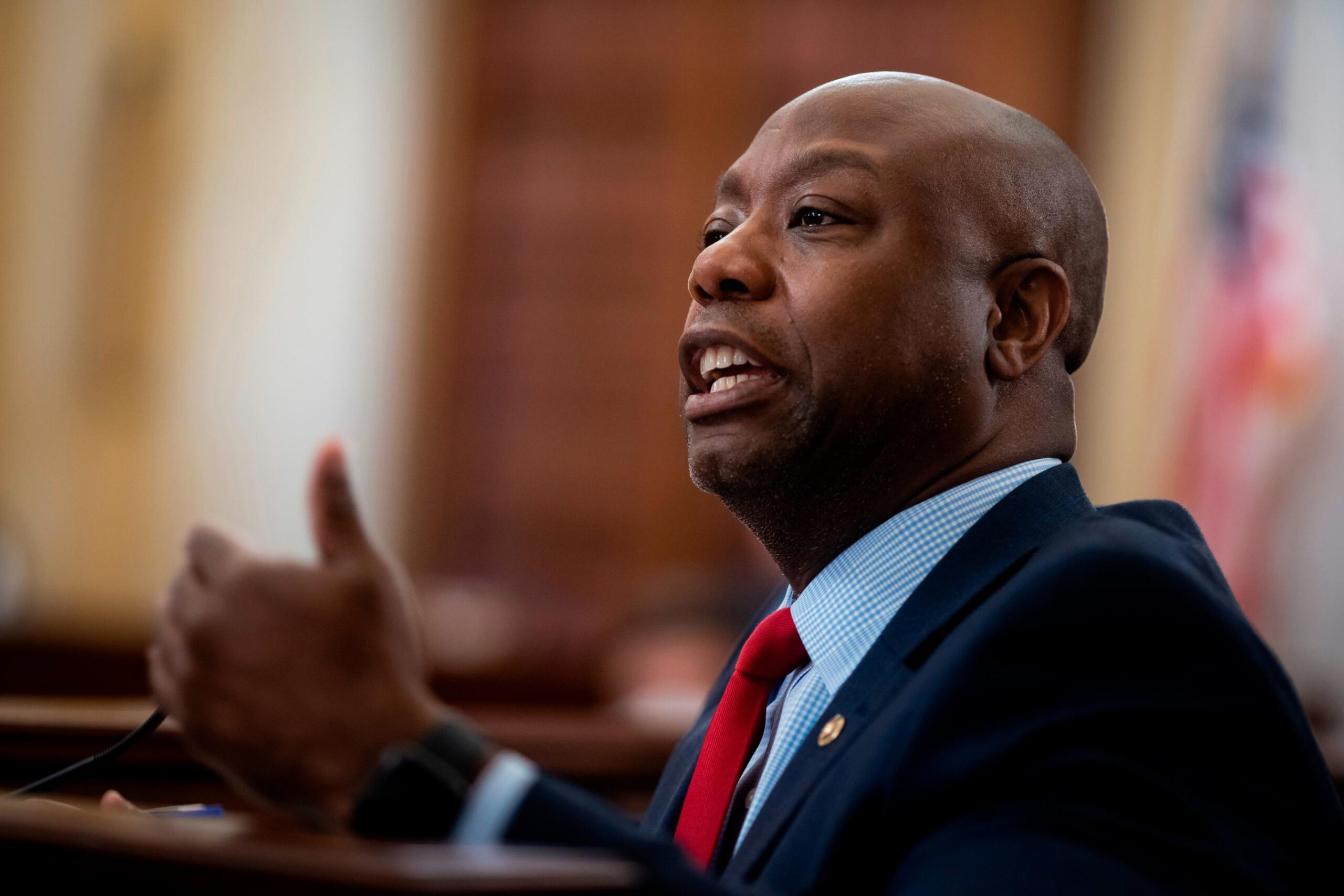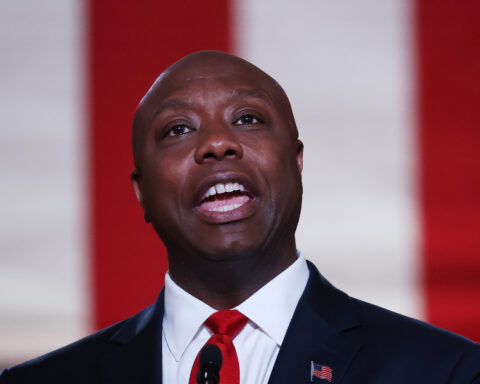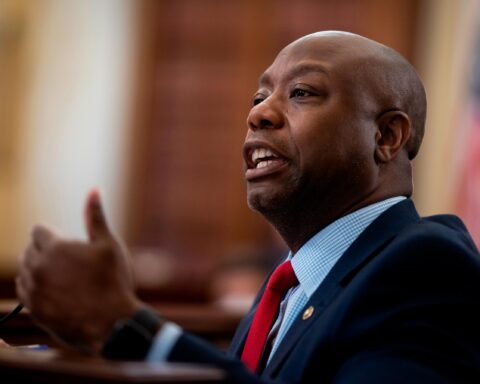The top Republican negotiator of a broad policing reform bill said that the two sides remain far apart on a number of issues that go beyond the key sticking point of qualified immunity and include many other issues that they’re finding “really hard” to resolve.
GOP Sen. Tim Scott of South Carolina also said the bipartisan group needs to have legislative text in the next two weeks, or it’ll be “very hard” to meet their deadline to have an agreement before the end of June, when a two-week July Fourth recess begins.
“It’s a little more complicated than just the top four or five issues that we’ve been covering, because the devil in the details of the actual body of the pieces of legislation are complicated and there are very big differences,” Scott said.
Scott’s words represent the most detailed explanation from one of the negotiators about the broad problems confronting the group and contrasts with others in it who have expressed an upbeat tone about the talks.
“There’s going to have to be paper,” Scott said. “If we don’t have paper in the next week or two, I think it would be very hard for us to make a deadline that is June 28.”
In contrast, Sen. Cory Booker of New Jersey, a key Democratic negotiator, told CNN Tuesday the talks are “going very, very well,” although he wouldn’t say when a deal could be reached.
“I want to get it done as quickly as possible. There’s an urgency here,” Booker said.
Scott described how in addition to resolving the stark differences over qualified immunity — which is the question of whether individual officers could be sued for wrongdoing as Democrats want but Republicans reject — there are still challenges in combining the Democrats’ House-passed George Floyd Justice in Policing Act with the Senate Republicans’ JUSTICE Act.
“The short answer is, the immunity issue is still very important,” Scott said. “But the body of the George Floyd bill versus the Justice Act — there’s a chasm between the two. That’s one of the reasons why we’re working on solutions that will be written down, that will be neither, but will combine both in parts. So, it’s a little more complicated than just the top four or five issues that we’ve been covering because the devil in the details of the actual body of the pieces of legislation are complicated and there are very big differences.”
Asked by CNN why the talks, which have stretched on for many weeks, are taking so long, Scott said combining the two very large bills is proving to be complicated.
“Have you read the two bills? They’re long,” he said. “So, I don’t mean that to be sarcastic. In all honesty, comparing the two bills, and then coming to a solution on the two sides is really hard.”
Though Scott sounded downbeat about the talks, a source with direct knowledge said later Tuesday that lawmakers have been making significant progress and are moving very close to cutting a deal.
The source said lawmakers have made substantial progress on outstanding issues in the legislation and are closer to reaching an agreement — including on the main sticking point of changing the qualified immunity standard to make it easier for victims of police violence to sue in civil court.
It’s still possible the talks could fall apart, but there’s a sense that a deal is within reach and could be finalized within days.
Sen. John Cornyn, a top GOP senator who has been closely monitoring the talks and speaking regularly with Scott, told CNN earlier Tuesday that with a deadline less than three weeks away, if lawmakers want to reach an agreement, qualified immunity will likely not be in the bill.
The Texas Republican added that it’s been his understanding “all along” that qualified immunity was not going to be negotiable.
“I saw that he said that qualified immunity is not negotiable,” Cornyn said of Scott. “And that’s kind of been my understanding all along, that Democrats keep hoping that it is and people figure ways to wire around it.”
Sen. James Lankford of Oklahoma, a Republican co-sponsor of the GOP bill, expressed hope that a deal will be reached soon, but acknowledged there’s still some work to be done on the “big issues” and “100 small issues” that need to be settled.
Asked about Scott’s remark about there being many more outstanding issues than just qualified immunity, Lankford said, “There are the big issues that are out there and then there’s 100 small issues. And so we’re getting close on the big issues. Still got to close the gap on the small.”







